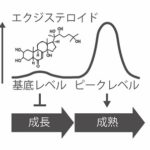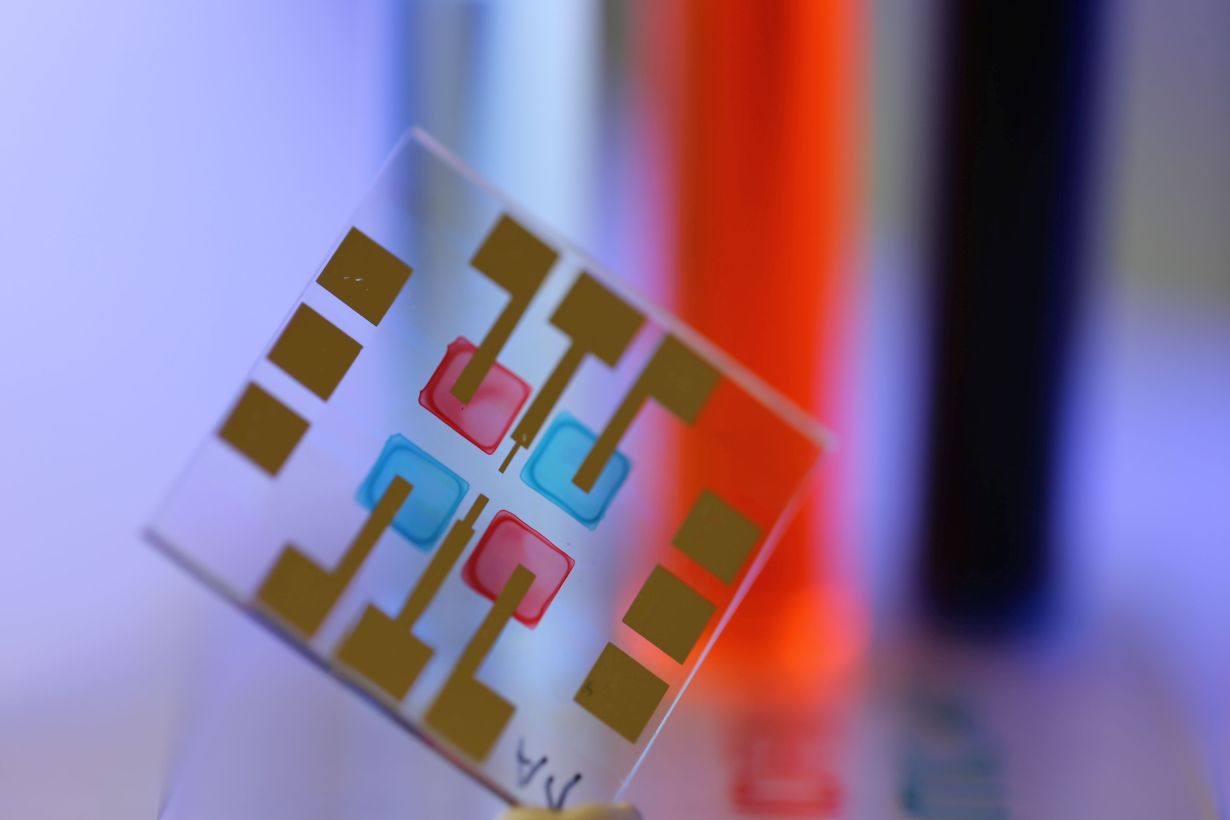(Sweat Sensor Detects Stress Levels; May Find Use in Space Exploration)
2020/2/26 アメリカ合衆国・カリフォルニア工科大学(Caltech)

・ Caltech が、抗ストレスホルモンであるコルチゾールレベルをほぼリアルタイムで精確に検出する、ワイヤレス汗センサーを開発。
・ 同汗センサーは、先般開発の血中の尿酸レベルを検出する汗センサーと同様のアプローチ(ポリイミドフィルムの CO2 レーザーエッチングによる 3D グラフェン構造)を用いて作製。3D グラフェン構造の微細孔による大面積が、汗に微量に含まれる化合物を検出する感度を提供する。新センサーは、これらの微細孔にコルチゾールに高感度な抗体を結合させたもの。
・ 同汗センサーについて 2 種類の試験を実施。ボランティア被験者の汗を 6 日間分析してコルチゾールレベルのデータを収集する試験では、健康な被験者のコルチゾールレベルが毎朝起床後に最も高くなり、その後一日を通じて下降すること確認。コルチゾールレベルの変化を非侵襲的にモニタリングできるセンサーを初めて実証した。
・ また、被験者による有酸素運動と氷水に手を浸す 2 種類の実験により、急性ストレスへの反応によるコルチゾールレベルの変化を調査。両実験の結果、同センサーはコルチゾールレベルの急峻な上昇を検出。ストレスモニタリングでは迅速な検出が重要。ストレスの元にもなる通常の血液試験では、採血後の分析に数時間を要するが、同センサーでは数分内での分析が可能。
・ 同汗センサーを開発した同大学研究チームは、昨年 10 月、アメリカ航空宇宙局(NASA)によるディープスペース・ミッションにおける人間の健康状態の研究活動への参加に採用されている。
・ 同チームは、同プログラム(Translational Research Institute for Space Health(TRISH)が運営)の一環として、宇宙飛行士のストレスや不安感のモニタリングシステムのセンサー技術開発資金を受け、バイタルサインや分子バイオマーカー情報を含むマルチモーダルなデータを収集し、ディープスペースでのストレスと不安感の正確な分類を目指したウェアラブルシステムを開発する。
・ 本研究には、Rothernberg Innovation Initiative、Carver Mead New Adventures Fund、Caltech andCity of Hope Biomedical Research Initiative および米国立衛生研究所(NIH)が資金を提供した。
URL: https://www.caltech.edu/about/news/sweat-sensor-detects-stress-levels-may-find-usespace-exploration
(関連情報)
Matter 掲載論文(アブストラクトのみ:全文は有料)
Investigation of Cortisol Dynamics in Human Sweat Using a Graphene-Based Wireless mHealthSystem
URL:https://www.cell.com/matter/fulltext/S2590-2385(20)30021-7?_returnURL=https%3A%2F%2Flinkinghub.elsevier.com%2Fretrieve%2Fpii%2FS2590238520300217%3Fshowall%3Dtrue
<NEDO海外技術情報より>
Progress and Potential
Prompt and accurate detection of stress is essential to the monitoring and management of mental health and human performance. Considering that current methods such as questionnaires are very subjective, we propose a highly sensitive, selective, miniaturized mHealth device based on laser-enabled flexible graphene sensor to non-invasively monitor the level of stress hormones (e.g., cortisol). We report a strong correlation between sweat and circulating cortisol and demonstrate the prompt determination of sweat cortisol variation in response to acute stress stimuli. Moreover, we demonstrate, for the first time, the diurnal cycle and stress-response profile of sweat cortisol, revealing the potential of dynamic stress monitoring enabled by this mHealth sensing system. We believe that this platform could contribute to fast, reliable, and decentralized healthcare vigilance at the metabolic level, thus providing an accurate snapshot of our physical, mental, and behavioral changes.
Summary
Understanding and assessing endocrine response to stress is crucial to human performance analysis, stress-related disorder diagnosis, and mental health monitoring. Current approaches for stress monitoring are largely based on questionnaires, which could be very subjective. To avoid stress-inducing blood sampling and to realize continuous, non-invasive, and real-time stress analysis at the molecular levels, we investigate the dynamics of a stress hormone, cortisol, in human sweat using an integrated wireless sensing device. Highly sensitive, selective, and efficient cortisol sensing is enabled by a flexible sensor array that exploits the exceptional performance of laser-induced graphene for electrochemical sensing. Here, we report the first cortisol diurnal cycle and the dynamic stress-response profile constructed from human sweat. Our pilot study demonstrates a strong empirical correlation between serum and sweat cortisol, revealing exciting opportunities offered by sweat analysis toward non-invasive dynamic stress monitoring via wearable and portable sensing platforms.

